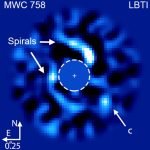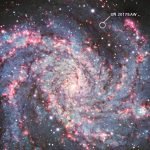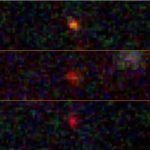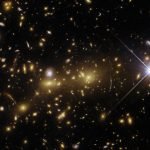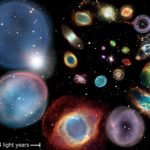This giant exoplanet is the hidden force behind spiral arms in protoplanetary disks
Ever seen pictures of our Milky Way galaxy?
It's full of beautiful spiraling arms packed with stars that extend out from the center.
Interestingly, similar patterns...
How dying stars help feed next generation of galaxies
Imagine a firework show that's so bright, it outshines an entire galaxy!
That's what happens during a supernova - the gigantic explosion that occurs when...
James Webb Telescope may have found mysterious ‘dark stars’ in outer space
Have you ever looked up at the night sky and wondered what those stars are made of? For most stars, the answer is nuclear...
NASA’s Hubble spots a space monster in the making
The Hubble Space Telescope, run by NASA and the European Space Agency (ESA), has caught sight of something spectacular happening way out in the...
Scientists cracked a decade-old mystery about stars in our Milky Way galaxy
You've probably heard of detectives, but have you ever heard of star detectives?
A group of scientists from The University of Manchester and the University...
Scientists discover the coldest star ever known to send radio waves
Imagine sitting around a campfire, feeling the warmth on your face, and then realizing that there's a star out there, somewhere in the vast...
Titanium clouds make this exoplanet shine like a mirror
Astronomers have found a very unusual exoplanet.
It’s a Neptune-sized world that orbits its star every 19 hours, and it’s the brightest exoplanet ever discovered.
They...
21-cm forest probe could unlock the secrets of the universe’s first galaxies
The first galaxies in the universe and the mysterious nature of dark matter have captivated human curiosity for ages.
Scientists from Northeastern University in China...
New study boosts chances of finding water and life in the universe
Exciting research presented at the Goldschmidt geochemistry conference has revealed that the probability of finding Earth-like exoplanets with liquid water, and potentially supporting life,...
Moon’s craters reveal a surprising time twist, shows study
In a remarkable discovery, scientists have recalibrated the age of craters on the Moon, revealing that parts of its surface are approximately 200 million...

